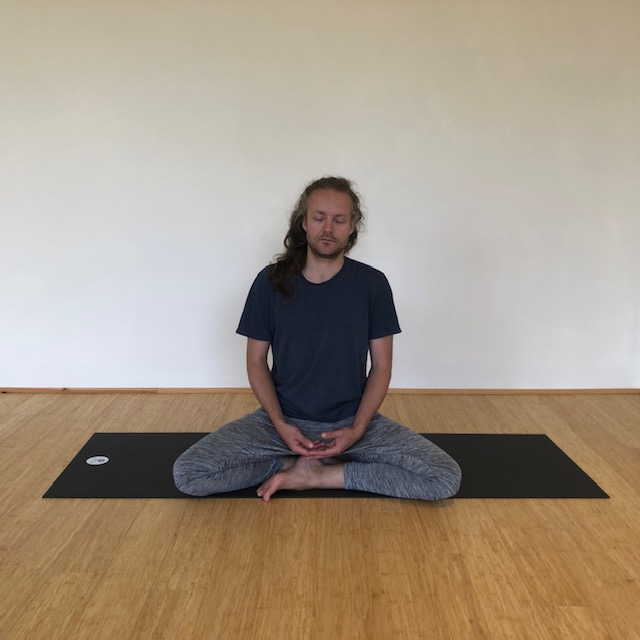Here at One for All we consider meditation and Yoga to be part of our ongoing healthcare. It’s encouraging to know that experts in psychology, neuroscience, oncology and other areas have begun investigating the effects of these two practices. One area of recent studies looks at their effect upon our other favourite pastime: sleep. So if you’d like to know more about how Yoga and meditation can improve your own zzzzz’s time, then keep reading!
Chronic sleep deprivation is a real problem for millions of people, but new research shows meditation to be a powerful antidote to insomnia. Recent studies have shown that people who learned to meditate experienced not only improvements in sleep quality, but also fewer symptoms of insomnia, depression and fatigue compared to those who followed standard protocols such as establishing a bedtime routine. One of the key principles of meditation is practising non-judgemental observation of thoughts. This is a skill that allows you to reclaim stability of your mind, putting you in a more restful state and removing some of the barriers to sleep.
One of the side effects of not getting enough sleep is being less productive and forgetful. This can cause severe consequences for your working life and could be potentially dangerous if you nod off at an inopportune time. Your personal relationships are also likely to suffer if you are constantly sleepy. Irritability and moodiness can result from sleep deprivation, so it is well worth being proactive in establishing and protecting some good sleep habits.
Relaxing after a long, busy day isn’t necessarily easy, and curling up in bed with your phone or computer switched on won’t help the situation. Only when you switch it all off can your mental activity naturally reduce. To enhance this process, it helps to become mindful of your breath and notice how your body reacts as you begin to relax. Just take note and then go back to your breath again, allowing the inhale and the exhale to guide you deeper and deeper into a peaceful state of stillness.
For some people, this kind of relaxation is extremely difficult. Sleeping patterns become disrupted when you are unable to leave the stresses and strains of the day behind and move into a more restful state. But over time, learning how to relax can help release tension in your body, calm your mind, and improve your mental wellbeing.
Yoga has been proven to evoke that sense of peace and calm that is ideal for encouraging sleep! Careful guidance from the teacher in a relaxing and serene atmosphere, perhaps with some evocative music and a sequence of long-held postures are helpful to prepare for bed. A gentle, calming practice not only improves your ability to fall asleep, but also the quality of that sleep when you finally drop off. So even if you don’t go straight off to sleep, you will still feel more refreshed the next day!
When practised right before bed, Yoga can physically and mentally prepare you for slumber. It’s the ideal way to wind down after a busy and stressful day. By focusing on your breathing throughout your practice, you allow the stresses and strains that have built up over the day to dissipate.
What postures or styles of Yoga can help? Yin Yoga, where you stay in each pose for several minutes at a time, can really assist in downregulating the nervous system and bring you into a state of calm prior to sleep. At home you might want to try legs-up-the-wall pose and just allow yourself to really feel your back supported on the ground. You can take different leg variations here including Butterfly legs with the soles of the feet together and knees apart, or Dragonfly legs with both legs straight and wide apart, or just have the legs straight up and together. Or you could practise Child’s Pose which is known for calming the body, mind and spirit. By curling inwards you create a kind of enclosure where you can move away from thinking towards sensing and feeling, asking yourself “what can I smell, taste, hear and feel around me?” and then, of course, there’s Savasana, which when practising at home you can perform in bed!
Savasana is just like taking a nap, right? Of course, lying on your back with your eyes closed and breathing deeply is a bit like sleep, but more experienced Yoga students know that as well as being the most beneficial of all the poses, it can also be the most challenging as the aim is to relax the mind and body whilst remaining present and alert. When relaxing in this way, the parasympathetic part of your autonomic nervous system is activated, causing a lowered heart rate, a calm state of mind, and a decreased release of stress hormones such as cortisol and adrenaline. At One for All we know that reducing stress is the key to decreasing fatigue, boosting energy and improving sleep, and that is why we always invite you to stay as long as you like, or as long as you can in each and every Savasana!
